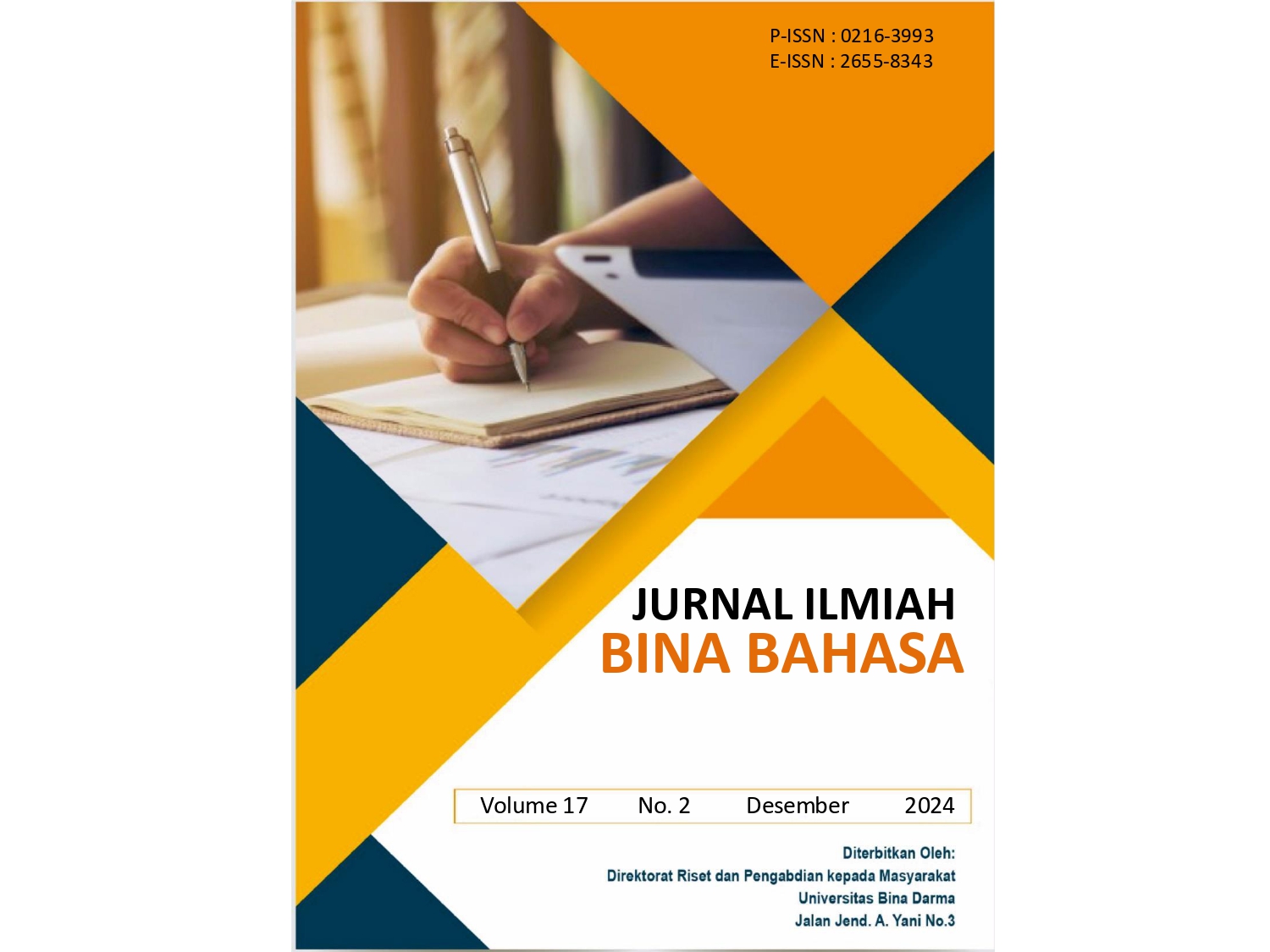RESEPSI PEMBACA PADA SITUS DARING TERHADAP NOVEL YUKIGUNI KARYA KAWABATA YASUNARI
Main Article Content
Abstract
Readers play an important role in analyzing a literary work. Each reader gives meaning and response to a work that may be similar but can also differ. Therefore, the existence of various online sites for reviewing a literary work enables other readers to see the diversity of responses to a novel. A Japanese novel that has received considerable attention and appreciation from readers is Yukiguni by Kawabata Yasunari. Various reader perspectives can be found on different online sites or blogs, such as Goodreads.com and LibraryThing.com, or in online bookstores like Amazon.co.jp. This study uses a descriptive qualitative approach to identify reader responses on online sites and analyzes them structurally. Through literary reception studies, it can be observed that each reader has a unique perspective on literature. Literary reception research also shows that literature is not static but is continuously brought to life and renewed by readers with each reading. This enriches literary studies by emphasizing the dialogical aspect between text and reader. The results of this study reveal readers' synchronous comments on the intrinsic elements of the novel which receive appreciation from readers in terms of both praise and criticism.
Article Details
Section

Jurnal Ilmiah Bina Bahasa by http://journal.binadarma.ac.id/index.php/binabahasa is licensed under a Creative Commons Attribution-ShareAlike 4.0 International License.
How to Cite
References
Allen. (2004). Yasunari Kawabata biographical (Online). Diakses Dari Https://Www.Nobelprize.Org/Prizes/Literature/1968/Kawabata/Biographical/ Pada 30 November 2024. .
Alwi Putri, D. A. (2018). Apriesiasi pembaca pada situs online terhadap novel kokoro karya Natsumie Sosieki. Universitas Hasanuddin.
Frastika, A., Hayuning Tyas, P., Anggita Harahap, Z. M., & Adelia Fahreza, S. (2024). Analisis resepsi sastra pada cerpen karena “kita tidak kenal” karya Farida Susanty. Mimbar Kampus: Jurnal Pendidikan Dan Agama Islam, 23(1), 561–568. https://doi.org/10.47467/mk.v23i1.6098
Hijiya-Kirschnereit, I. (2018). Body and experiment – reflecting Kawabata Yasunari’s counter-aesthetics. Japan Forum, 30(1), 42–59. https://doi.org/10.1080/09555803.2017.1307250
Keene, D. (2003). Dancing with the Gods: The life and work of Kawabata Yasunari. Princeton University Press.
Lestari, Dwi. (2019). Analisis resepsi sastra terhadap novel banat ar-riyadh karya Rajaa Alsanea. Diss. IAIN SALATIGAe-Repository IAIN Salatiga. Retrieved from Http://E-Repository.Perpus.Iainsalatiga.Ac.Id.
Semi, M. A. (2012). Metode penelitian sastra. CV Angkasa.
Shamoon, D. (2021). Gazing on the Shōjo : Kawabata Yasunari’s novels for girls (Shōjo Shōsetsu). Japanese Studies, 41(3), 361–377. https://doi.org/10.1080/10371397.2021.2000331
Umar Junus. (1985). Resepsi sastra. PT Gramedia Jakarta.
Wiastiningsih. (2020). Translation of numbers in Kawabata Yasunari’s novel yukiguni and two Indonesian translations. 総合政策学部Chuo University Academic Information.
Yoedo, Y. C. (2011). Reader-response analysis in snow country; a novel by Yasunari Kawabata (r). Jurnal Pendidikan Bahasa Dan Sastra (PENABASTRA), 4(1), 115–127.

